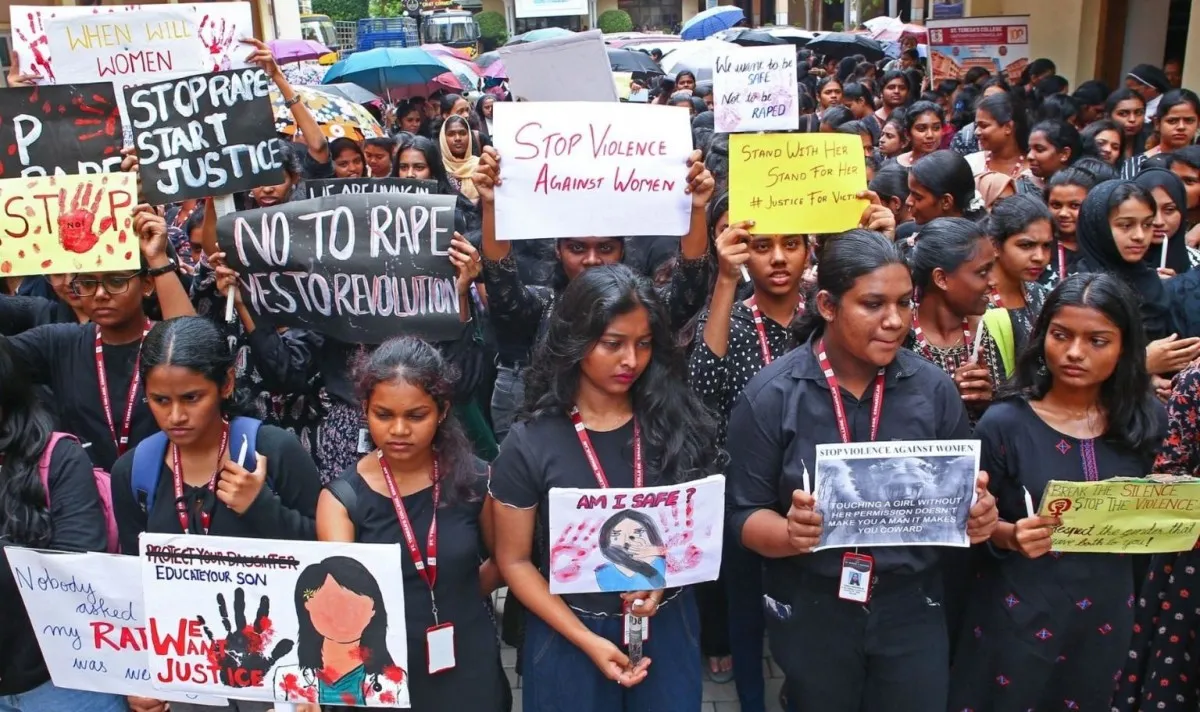25/08/2024
25/08/2024

KERALA, India, Aug 25: A landmark report into the challenges faced by women in the Malayalam-language film industry has exposed significant issues in one of India's most prominent film centers. The findings from the three-member panel are highly critical.
The 290-page report—some parts redacted to protect the identities of survivors and those accused—reveals a troubling environment dominated by "a mafia of powerful men" and widespread "sexual harassment of women." Established by the Kerala state government in 2017 and led by a former judge of the Kerala High Court, the Hema committee highlights severe deficiencies in working conditions on film sets, including inadequate facilities such as toilets and changing rooms for junior artists, lack of food and water, poor pay, and no provisions for accommodation or transport.
The report describes the dire situation faced by women on set: “There are no toilets, so women have to use bushes or thick trees. During their periods, they are forced to hold their urine for long periods and cannot change sanitary napkins, leading to physical discomfort and, in some cases, hospitalization.”
Though submitted to the government in December 2019, the report was only made public this week after nearly five years of delays and multiple legal challenges from the film industry. The panel was formed following a horrific sexual assault on a prominent actress, Bhavana Menon, who was attacked by a group of men while traveling from Thrissur to Kochi in February 2017. Dileep, a major actor in the Malayalam film industry and Menon’s co-star, was implicated in the assault. He denied the charges but was arrested and held for three months before being released on bail. The case is ongoing.
Despite Indian law protecting the identities of sexual assault survivors, it was widely known that Menon was the victim. In 2022, she publicly revealed her identity through social media and an interview with the BBC.
Shortly after the assault, the Women in Cinema Collective (WCC), a group of Menon’s colleagues, petitioned the government for action on the case and to address the broader issues faced by women in the industry. The report states that the WCC reported "women are being silenced to uphold the film industry's prestige."
The panel interviewed numerous individuals from across the industry—artists, producers, directors, and other professionals—and collected evidence, including video clips, audio recordings, and WhatsApp messages. The report characterizes sexual harassment as the "worst evil" faced by women in cinema, noting that it remains shockingly prevalent and goes unchecked.
The industry is described as being controlled by a group of powerful male figures who are among the perpetrators of harassment. The report states, "Men in the industry make open demands for sex as if it is their birthright. Women are left with little choice but to comply or risk their dreams of pursuing a career in cinema."
Many people interviewed by the panel were initially hesitant to speak due to fear of losing their jobs. The panel found their concerns justified and expressed worry for their safety and that of their families.
Beena Paul, an award-winning editor and founding member of the WCC, said the report validates their concerns. “For years, we have been asserting that there is a systemic problem in the industry. Sexual harassment is just one aspect. This report proves it,” she told the BBC. Paul also noted that members of the WCC have faced difficulties finding work due to their activism.
The Association of Malayalam Movie Artists (AMMA), a leading industry body with members such as Mohanlal and Mammootty, rejected the accusations. General Secretary Siddique disputed claims of a controlling group and denied that sexual harassment is widespread. He claimed that conditions for women on film sets have improved in recent years.
The report has stirred significant reactions, with activists and opposition leaders calling for action against the accused. Chief Minister Pinarayi Vijayan stated that if any woman who testified comes forward with a complaint, the government will act. A public interest petition has been filed in the Kerala High Court seeking criminal proceedings against those named in the report. The court has requested the government submit a copy of the report and will determine if criminal action is necessary.
Allegations of harassment in Indian film industries are not new. The 2018 #MeToo movement saw Bollywood's Tanushree Dutta accuse veteran actor Nana Patekar of inappropriate behavior, which he denied. Dutta, who claimed to have been denied work since, dismissed the Hema committee report as "useless."
Conversely, Parvathy Thiruvothu, an award-winning actress and key WCC member, called the report a "victory," believing it will lead to significant changes in the industry. Director Jeo Baby also expressed hope that the industry will address gender issues and work towards improvement.
The report's recommendations aim to create a safer working environment for women, ensuring that filmmaking becomes a viable career option for all aspiring artists and technicians, regardless of gender. It concludes with the hope that the profession will become as secure as other fields, such as engineering or academia.


